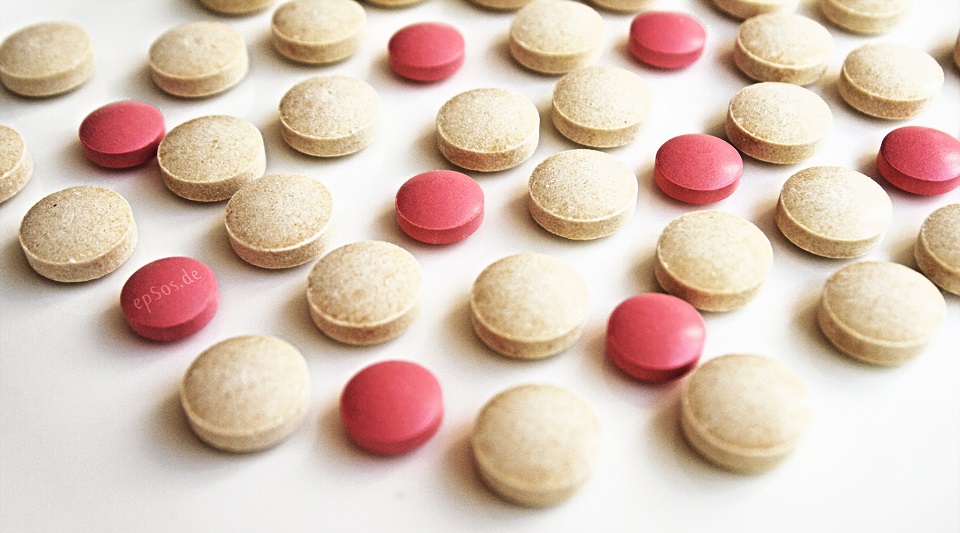
A recent study published in the journal JAMA (Journal of the American Medical Association) indicates that a multivitamin tablet a day appears to provide a small protective effect against cancer among older and middle-aged men.
Multivitamin use is widespread among adults in the western world. In the United States, for example, nearly 50 percent of all Americans are taking some form of dietary supplement and 33 % is taking a daily multivitamin.
This new study is based on 15,000 male doctors who received a multivitamin a day or a placebo. The men were then followed for on an average of 11 years.
The resulting data indicate that a multivitamin tablet reduces the risk of cancer by 8 percent. And the risk of recurrence of cancer decreased. However, the data for site-specific cancers like prostate, colorectal, bladder or lung cancer, showed no difference between the placebo and multivitamin groups.
The researchers say that the results may also reflect the reduced risk of cancer from fruits and vegetables, which are rich in vitamins. As epidemiologic studies have consistently found that a diet rich in fruits and vegetables is associated with reduced risk for cancer
Supplementation to decrease potential deficiency does give a small but noticeable positive effect in older men.
Context Multivitamin preparations are the most common dietary supplement, taken by at least one-third of all US adults. Observational studies have not provided evidence regarding associations of multivitamin use with total and site-specific cancer incidence or mortality.
Objective To determine whether long-term multivitamin supplementation decreases the risk of total and site-specific cancer events among men.
Design, Setting, and Participants A large-scale, randomized, double-blind, placebo-controlled trial (Physicians’ Health Study II) of 14 641 male US physicians initially aged 50 years or older (mean [SD] age, 64.3 [9.2] years), including 1312 men with a history of cancer at randomization, enrolled in a common multivitamin study that began in 1997 with treatment and follow-up through June 1, 2011.
Intervention Daily multivitamin or placebo.
Main Outcome Measures Total cancer (excluding nonmelanoma skin cancer), with prostate, colorectal, and other site-specific cancers among the secondary endpoints.
Results During a median (interquartile range) follow-up of 11.2 (10.7-13.3) years, there were 2669 men with confirmed cancer, including 1373 cases of prostate cancer and 210 cases of colorectal cancer. Compared with placebo, men taking a daily multivitamin had a statistically significant reduction in the incidence of total cancer (multivitamin and placebo groups, 17.0 and 18.3 events, respectively, per 1000 person-years; hazard ratio [HR], 0.92; 95% CI, 0.86-0.998; P = .04). There was no significant effect of a daily multivitamin on prostate cancer (multivitamin and placebo groups, 9.1 and 9.2 events, respectively, per 1000 person-years; HR, 0.98; 95% CI, 0.88-1.09;P = .76), colorectal cancer (multivitamin and placebo groups, 1.2 and 1.4 events, respectively, per 1000 person-years; HR, 0.89; 95% CI, 0.68-1.17; P = .39), or other site-specific cancers. There was no significant difference in the risk of cancer mortality (multivitamin and placebo groups, 4.9 and 5.6 events, respectively, per 1000 person-years; HR, 0.88; 95% CI, 0.77-1.01; P = .07). Daily multivitamin use was associated with a reduction in total cancer among 1312 men with a baseline history of cancer (HR, 0.73; 95% CI, 0.56-0.96; P = .02), but this did not differ significantly from that among 13 329 men initially without cancer (HR, 0.94; 95% CI, 0.87-1.02; P = .15; P for interaction = .07).
Conclusion In this large prevention trial of male physicians, daily multivitamin supplementation modestly but significantly reduced the risk of total cancer.
__________________________________
Multivitamins in the Prevention of Cancer in Men The Physicians’ Health Study II Randomized Controlled Trial
_________________






















